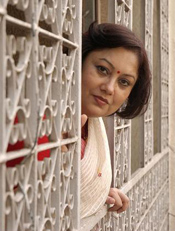The goodness of the good Indian girl is a badge of sorts. Or, as the cover of Annie Zaidi and Smriti Ravindra’s The Bad Boy’s Guide to the Good Indian Girl suggests, a tacky sparkly medallion. As the authors emphasize in their introduction, “good” here “does not mean the opposite of bad”; merely the set of behaviour considered desirable in an Indian girl.
What Zaidi and Ravindra explore in this collection of loosely connected (several characters and names appear in more than one) stories is not the oppressive nature of this set of desirable qualities, but the ways in which women can transgress them and still retain the Good Indian Girl (or GIG) tag. The result is a book of surprisingly subversive tales in which girls interact with men, climb down rope ladders (“BIG Girls”), flirt and draw back (“Strangers”), cut themselves (“Out of Here”), are nervous and afraid around men but simultaneously willing to play along (“Finger Play”) and manipulate their perceived goodness for their own ends (“Daddy’s Girls”). They are less about emphasizing the restrictions placed on Indian women than they are about how women use and test them. The “GIGs” in these stories have agency and they use it.
Full review here Mint



